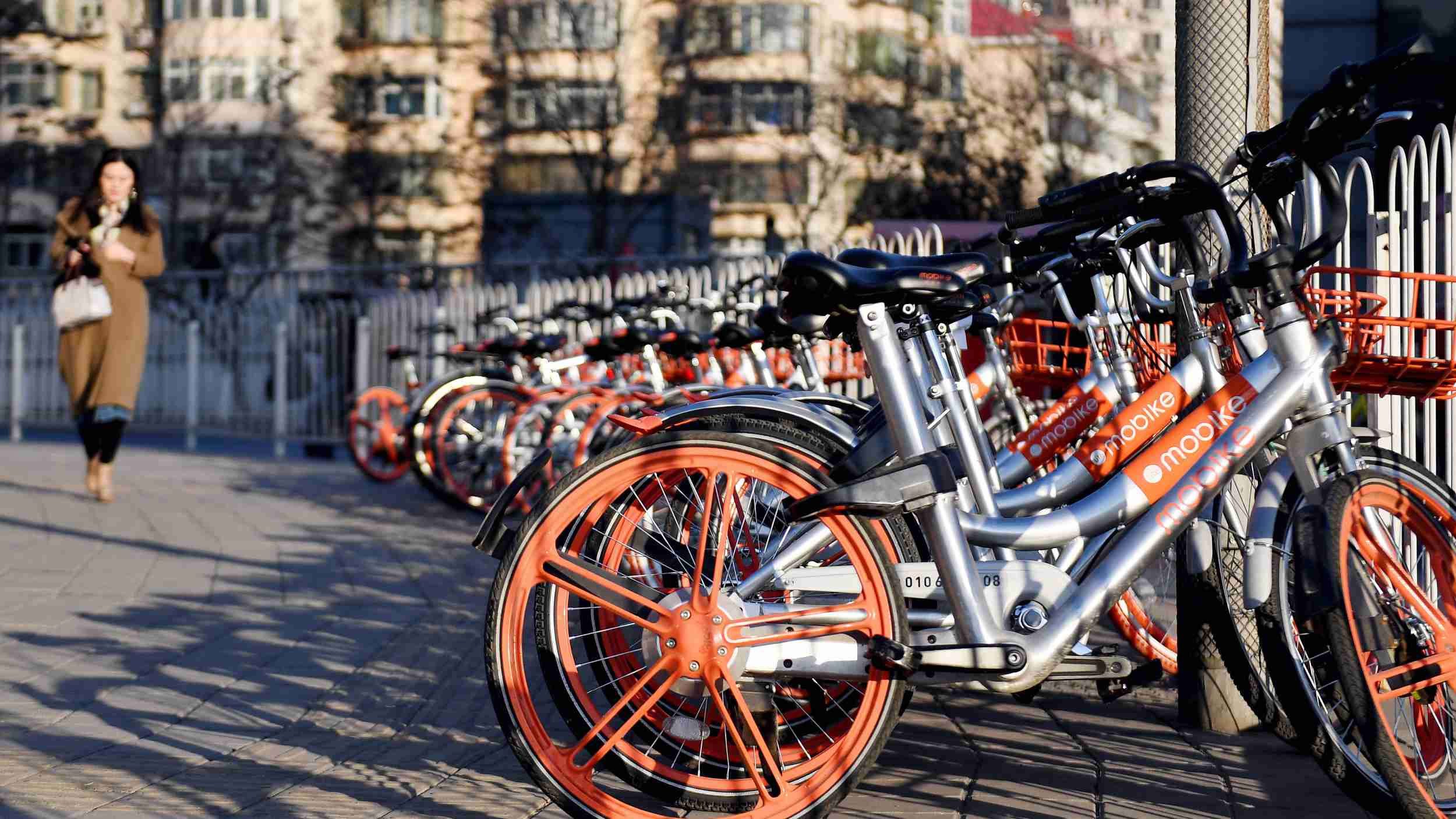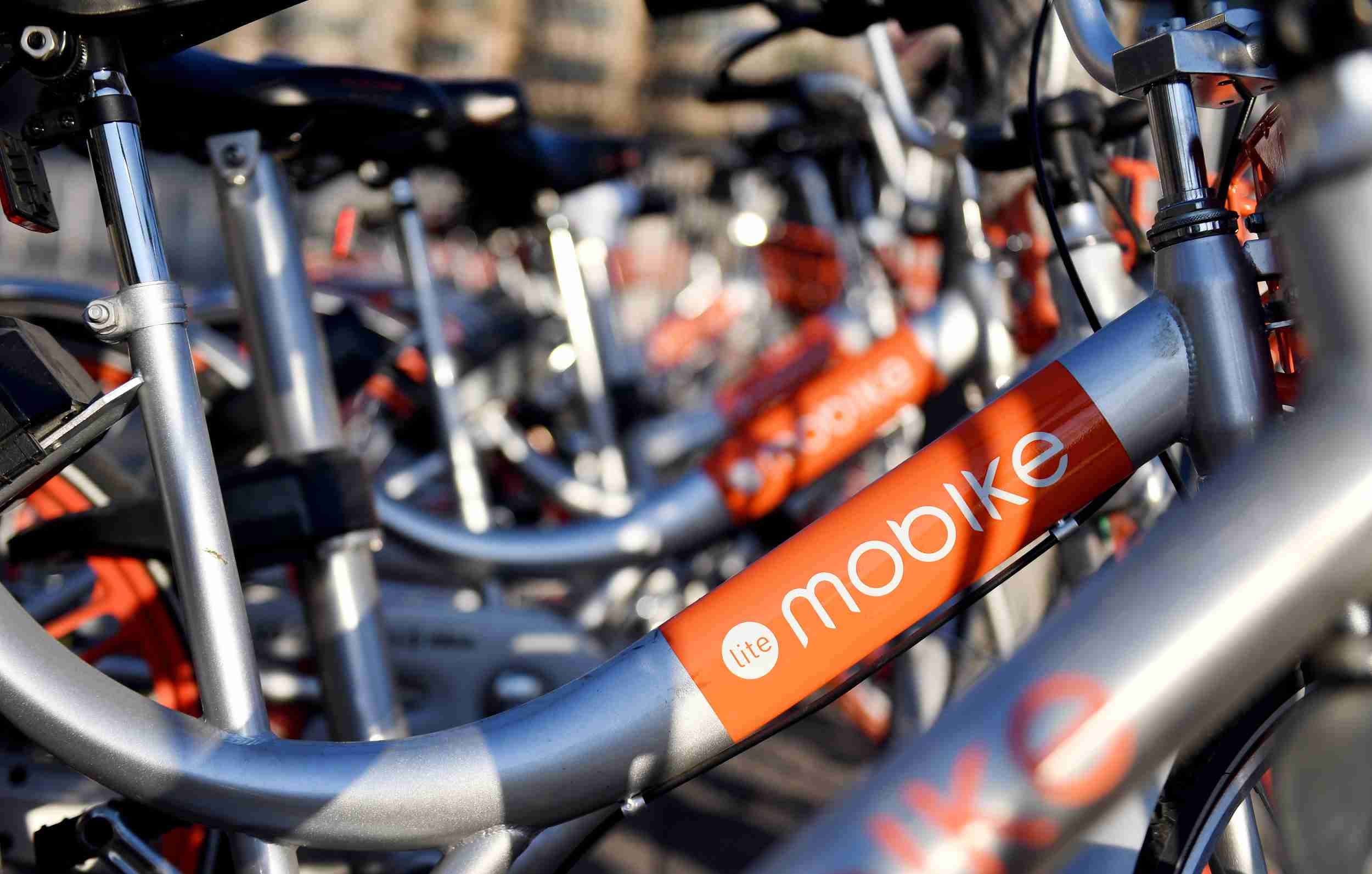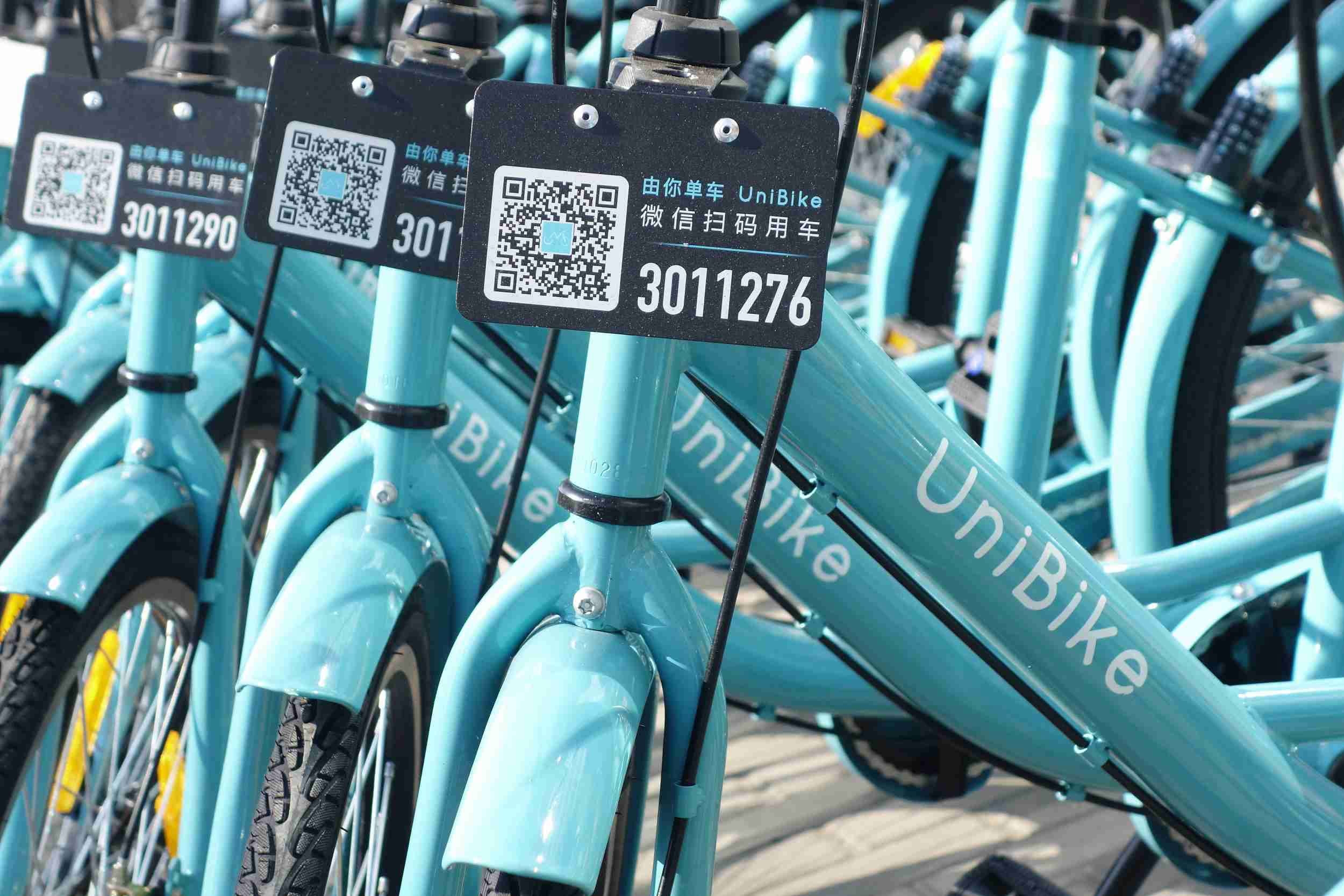
Business
15:05, 23-Jun-2017
Has China's bike-sharing industry started a shake-up?

It's what everyone has been waiting for in China's nascent bicycle-sharing sector. Rumors of the first acquisition have emerged in the cutthroat industry that has seen meteoric growth in a little over than a year.
Mobike, famous for its orange-colored bicycles, is reportedly expected to complete its buyout of smaller competitor Xiamen-based UniBike, according to an unnamed source familiar with the process cited by Tencent News.
The sum Mobike has offered has not been disclosed, but the source did say that Mobike put forth one million yuan (146,000 US dollars) to Unibike in the A round financing in October 2016 when the firm was launched, accounting for 20 percent of the total money raised.

Mobike's bicycles placed on a street in Beijing. /VCG Photo
Mobike's bicycles placed on a street in Beijing. /VCG Photo
Unibike, much like Ofo, is a startup that was born in a university campus before hitting the streets of China.
According to the source, Mobike and Unibike will coordinate their business after their deal, with the former focusing on high-end market while the latter catering for the low-end segment with deposit exemption.
Unibike is also expected to dispatch about five million bikes in first-tier cities within this year as competition heats up.
The news of a possible acquisition comes on the heels of another ground-shaking news that has rattled the bike-sharing sector.
Just last week, Chongqing-based start-up Wukong Bicycle declared bankruptcy after 90 percent of its vehicles either went missing or were stolen, marking the first time a company withdraws from the market.

Unibike's bicycles placed by the road in Beijing. /VCG Photo
Unibike's bicycles placed by the road in Beijing. /VCG Photo
The company had only been in business for less than half a year.
Lei Houyi, founder of Wukong Bicycle, told Xinhua News Agency that they did not place GPS tracking devices on their bikes, and by the time they realized their necessity, money had run out.
He also attributed the company's failure to the inferior quality of its bikes, since Wukong was unable to secure a respectable supplier.
According to a report by Sixth Tone, a sister publication of The Paper, Mobike and Ofo, currently the two dominating companies in the industry, have gradually invested their resources into improving their product's function, safety, and scale, as well as expanding to smaller cities, which also implies that "the shared bikes are entering a middle stage whereby newcomers are being squeezed out of the market almost immediately," according to the publication.

Bikes of various sharing-bike companies placed in Shenzhen, Guangdong Province. /VCG Photo
Bikes of various sharing-bike companies placed in Shenzhen, Guangdong Province. /VCG Photo
What's next?
Zhu Xiaohu, co-founder of GSR Ventures and one of the earliest investors in the sector, predicted last September that "the war of the shared bikes will end within 90 days."
And it sure seems like the industry is finally starting to rid itself of smaller players and reshuffle alliances.
While speaking to local newspaper Southern Weekend, Guo Jingjing, Vice President of start-up 700Bike, said that competition has reached a crucial phase.
"There will only be one winner, and survival would become hardly possible for those beyond the top three," he said.
Some small players have little to no value for mergers and acquisitions..
Related stories:

SITEMAP
Copyright © 2018 CGTN. Beijing ICP prepared NO.16065310-3
Copyright © 2018 CGTN. Beijing ICP prepared NO.16065310-3